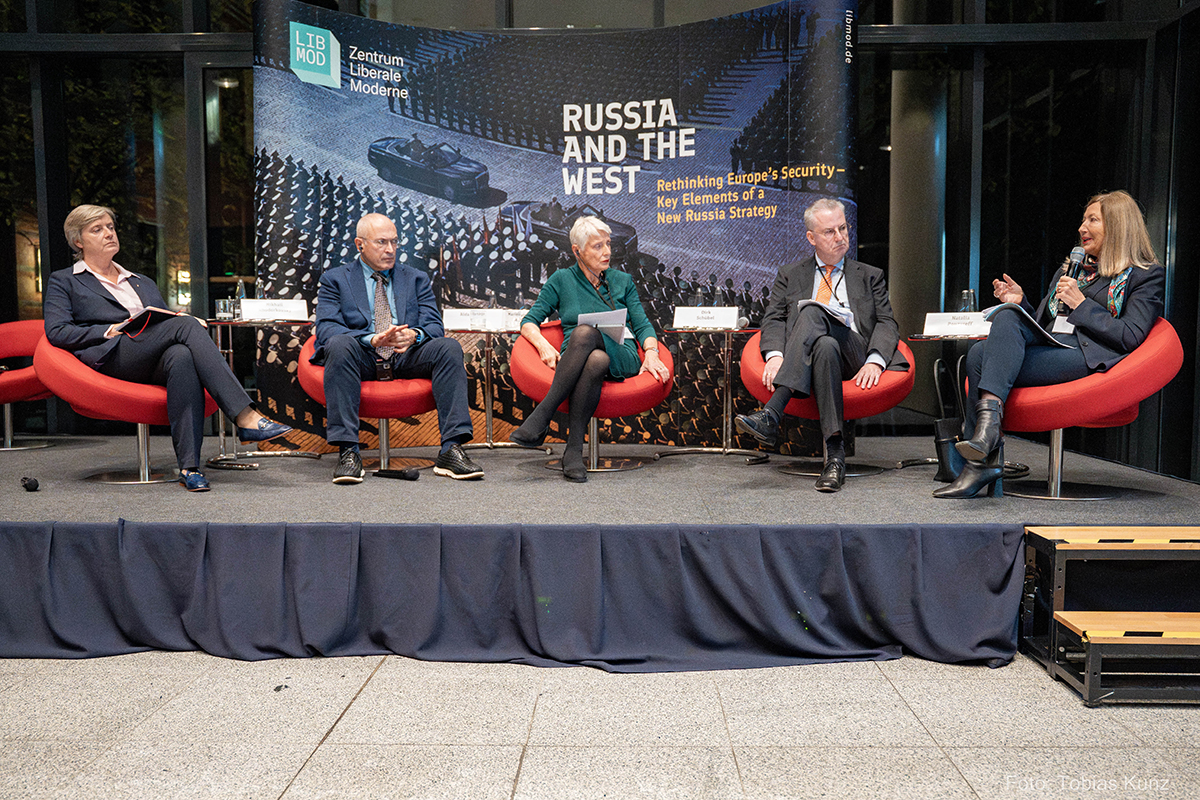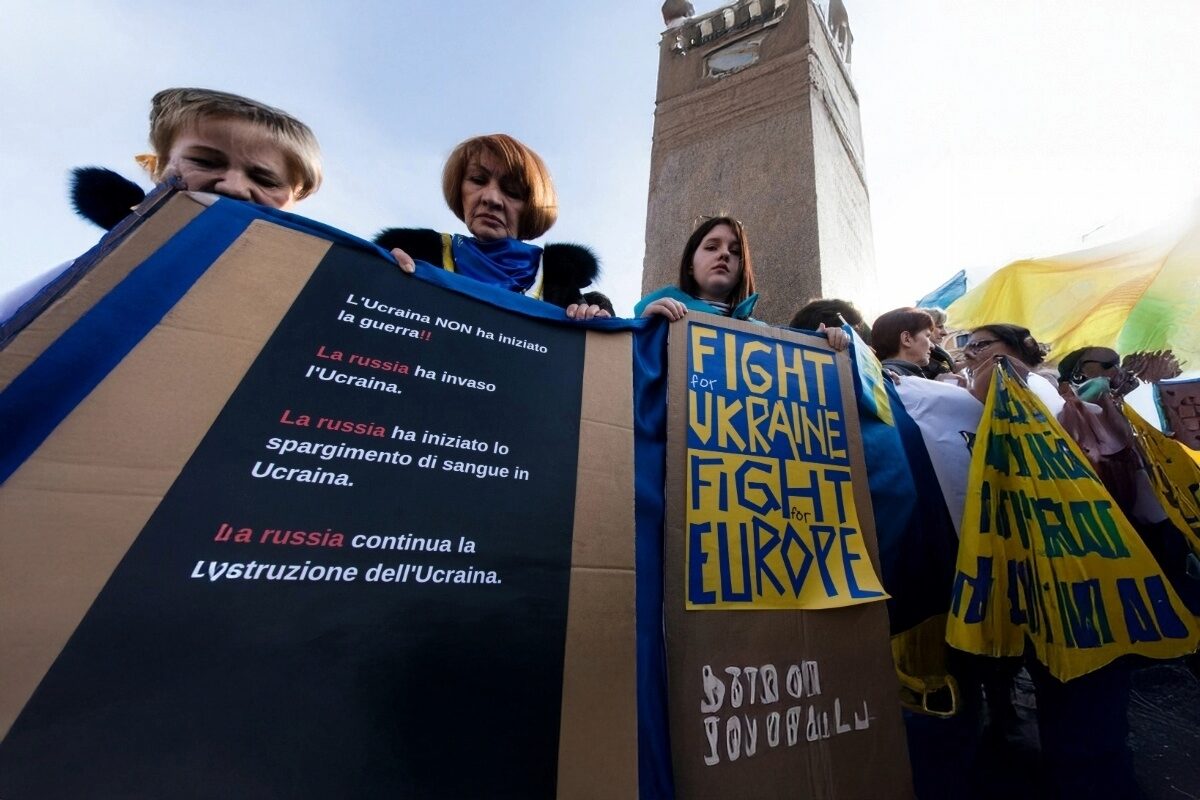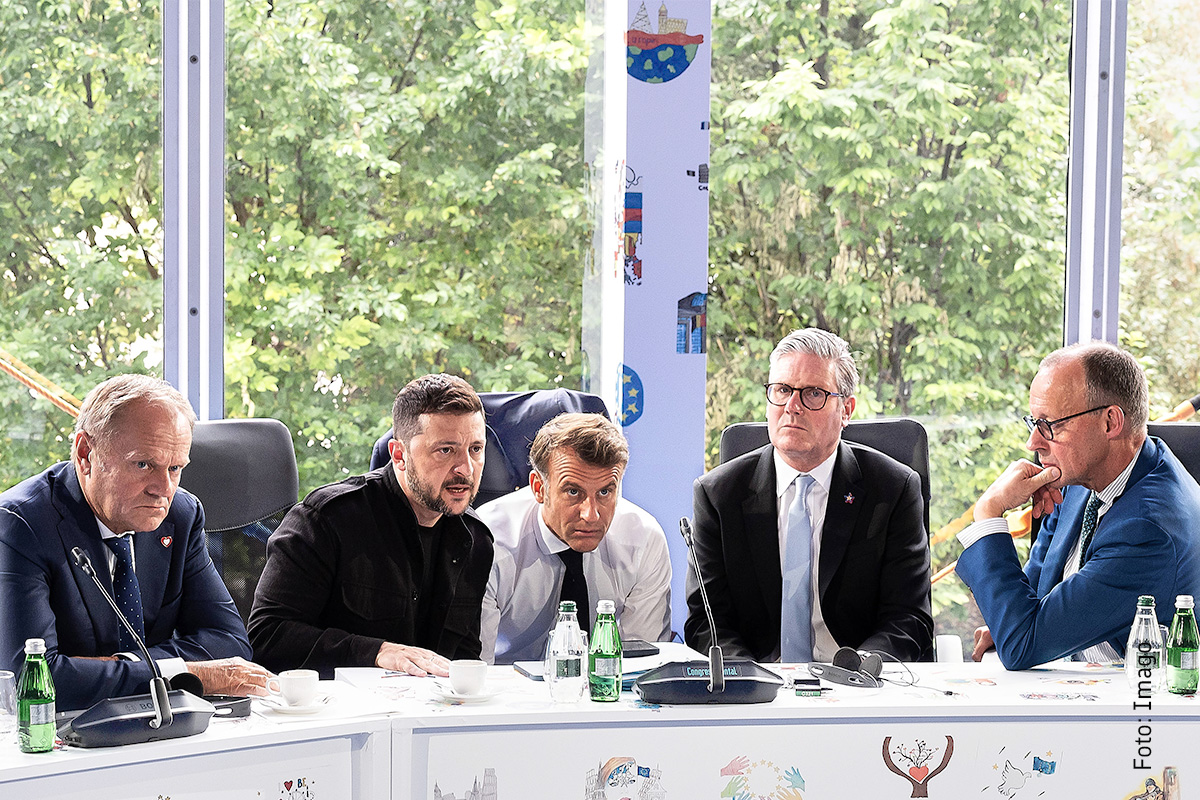Putin’s Poisoned Chalice*
An answer to Wladimir Putin’s fine tuned op-ed in the German weekly Die Zeit by Ralf Fücks, Center for Liberal Modernity.
In a recent op-ed piece, Vladimir Putin called for dialogue between Russia and Europe. Ironic, as he was the one who destroyed the basis for such talks in the first place.
Vladimir Putin’s excursus marking the 80th anniversary of the German invasion of the Soviet Union is a small masterwork. The piece plays skilfully on the complex mixture of emotions that Germans harbour towards Russia. Putin knows only too well that the guilt and shame evoked by the war of annihilation waged by the Wehrmacht and the SS are directed almost entirely towards Russia, though that the violent excesses of the eastern campaign were no less brutal in the territories of Poland, Ukraine and present-day Belarus. A great many nations suffered under the war and occupation. A great many nations paid in currency of immeasurable sacrifice to bring Hitler’s Germany to its knees. Yet the empathy that Germans feel towards the victims and their liberators is far from evenly distributed – an asymmetry that the Kremlin does its best to encourage.
The glorious victory in the “Great Patriotic War” is a key source of legitimacy for the Putin regime. Nothing can be allowed to cast a shadow on this image. The Hitler-Stalin Pact, the carving up of Poland by mutual agreement, the imperialistic dividing up of Eastern Europe before the 22nd of June 1941: Putin piece alludes to none of these. Nor does he see any reason to mention that liberation from Nazi rule led directly to the establishment of another form of tyranny in the eastern half of Europe. The twofold experience of violence undergone by the peoples of East Central Europe under Hitler and Stalin has no place in Putin’s picture of Great-Russian history.
The anti-Western undercurrent in Germany, the chronic ambivalence towards American and deep-seated reservations about NATO combine to form a second motif in Putin’s composition. If we believe him, the eastwards expansion of NATO was the original sin that destroyed New Europe. This is reality turned upside down. NATO was never a threat to Russia. It is not anti-Russian in either its political or its military orientation. Nor did the initiative for NATO’s enlargement originate in Washington. On the contrary, it began in the new democracies in East Central Europe, which were seeking insurance themselves against the risk of a re-emergence of imperial ambitions in the Kremlin. Russia’s military interventions in Georgia and the Ukraine have confirmed that their fears were justified.
Finely tuned for a German audience.
The melody of Putin’s piece is finely tuned for German ears. His plea for a “Europe from Lisbon to Vladivostok” is aimed at detaching us from the USA, at long last, and replacing our ties with the West with an alliance with Moscow. There has long been fertile soil for this in Germany – from the far left to the far right. There are elements in the German economy that are still attracted to the idea of a strategic alliance within which Russia provides the raw materials and Germany the advanced technologies. Nord Stream 2 belongs very much in this tradition. In the political arena as well, there are those both in conservative circles and on the left who are quite taken with idea of a Berlin-Moscow axis acting as a geopolitical counterweight to America and China.
Putin cultivates these leanings quite deliberately. He is betting that a Europe without the transatlantic bonds of mutual alliance will come under the political and military dominance of Russia. In the Kremlin’s eyes, Germany is the “swing state”: with a victory here, he can take NATO down. No effort is too great for a reward like that. And the profits from natural gas and oil exports make for deep pockets.
Russia destroys the basis for dialogue
Dialogue as a panacea for forgiving and peaceful cooperation forms a third motif that runs through Putin’s piece. The threads of continuing conversation must not be allowed to break down – this is a ubiquitous refrain in the Russia debate. Yet conversation is not in short supply. Chancellor Angela Merkel speaks with Putin on the phone regularly, the European foreign ministers take turns meeting with their Russian counterpart, Sergey Lavrov. Russia is a member of the Council of Europe and of the OSCE; there are joint economic forums, city partnerships and the Petersburg Dialogue. Yet none of this has prevented the Kremlin from steering a course towards conflict. The list of its transgressions is quite long – from the undeclared war against Ukraine to the cyber-attacks on the German Bundestag to the assassination attempts on Putin opponents in Europe.
No amount of willingness to engage in dialogue can change the fact that we are in the midst of a new conflict of systems, with liberal democracies on the one side and their authoritarian counterparts on the other. At the very least, we should recognise just who it is we are dealing with in Moscow. Otherwise, the European “good-will” diplomats will face treatment like that meted out to Josep Borrell, the EU’s chief of foreign relations, when he was publicly humiliated by Lavrov.
The Russian leadership has been systematically destroying the bases for a serious dialogue. On the domestic front, they have steadily ratcheted up the pressure on civil society. Freedom of expression has been restricted through a whole series of repressive laws. More than 160 NGOs have been branded “foreign agents”. Any political opposition is prevented before it can get started. Television, the justice system and the Duma were forced into line long ago; critical thinkers are driven out of the country.
Meanwhile, the list of “undesirable foreign organisations” barred from any kind of activity in Russia grows ever longer. It includes foundations for democracy, like the European Endowment for Democracy and the Open Society Foundations, research institutes and European platforms for democratic elections. Very recently, the DRA (German-Russian Exchange) and the Center for Liberal Modernity were added to the list of the banned, putting an end to years of cooperation with Russian friends and partners. In the future, anyone who cooperates with us risks a prison sentence. Clamping down inside the country and closing the doors to outside influence go hand in hand.
That diplomatic channels to Moscow must be kept open is self-evident. We should be doing everything in our power to support democratic forces in Russia at the same time, though.
Putin is not Russia
Vladimir Putin is not Russia. There is a growing democratic awareness in the regions and in the younger generations. They are our strategic partners. We must not allow Moscow to dictate the terms for dialogue. Russian state media and web brigades are influencing public opinion in the West on a grand scale; the Kremlin is cooperating with populist parties on both sides of the political spectrum all across Europe. This, while cooperation with Russian partners is prohibited as “interference with internal affairs”. This is unacceptable.
So, what should our response to Putin be? Russia is welcome in the common European house. Yet economic and political partnership have to be based on common values and rules. There is no getting around that. An offer of European cooperation that omits any mention of democracy, human rights, or the equal security and sovereignty of all states is a poisoned chalice.
*Translation from the German of “Putins vergiftetes Angebot”, an opinion piece published in ZEIT ONLINE on 24 June 2021.
Ralf Fücks is a founder and Managing Partner at the Center for Liberal Modernity
![]()
Did you like thike this article? If yes, you can support the independent editorial work and journalism of LibMod via a simple donation tool.
We are recognized as a non-profit organization, accordingly donations are tax deductible. For a donation receipt (necessary for an amount over 200 EUR), please send your address data to finanzen@libmod.de
Related topics
Newsletter bestellen
Stay tuned with our regular newsletter about all our relevant subjects.





